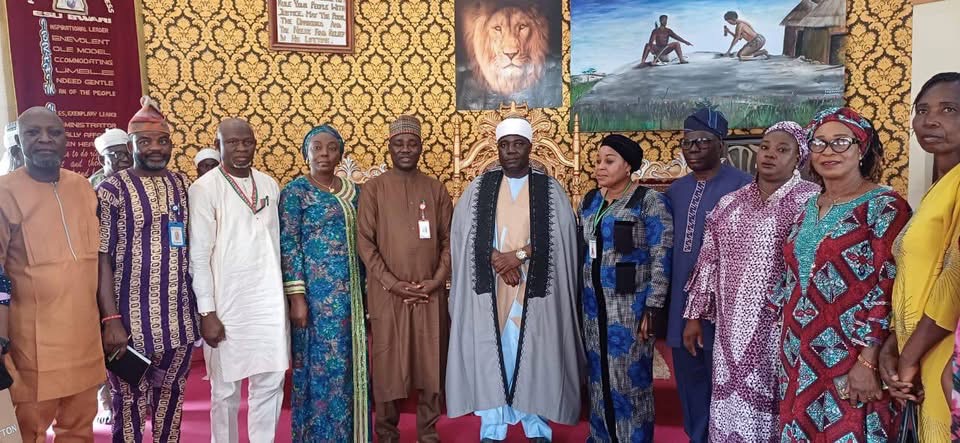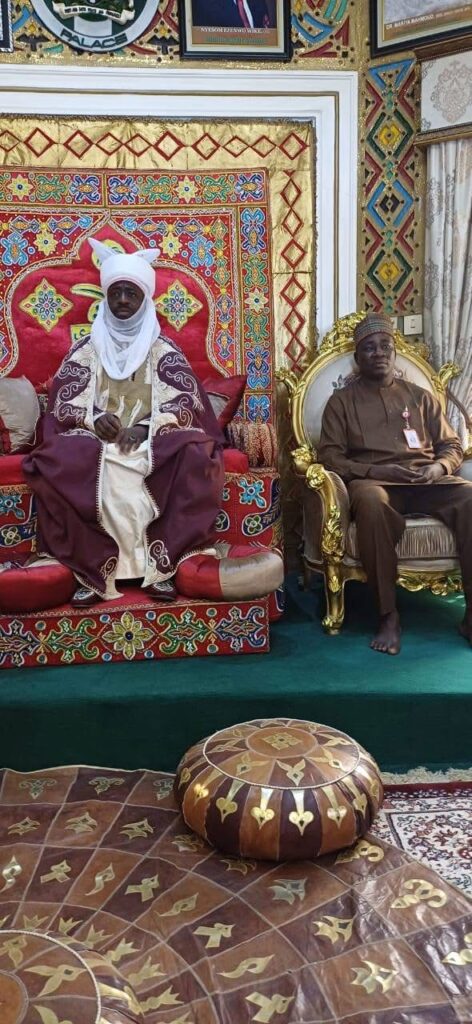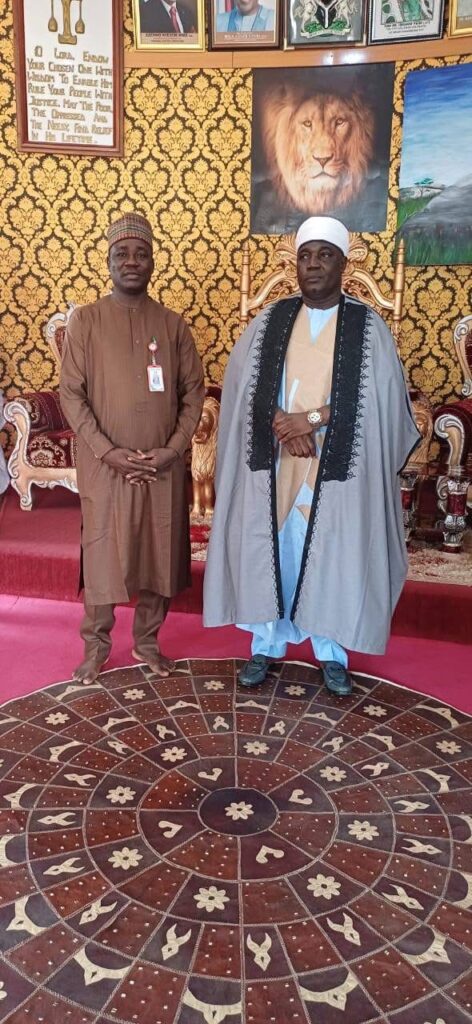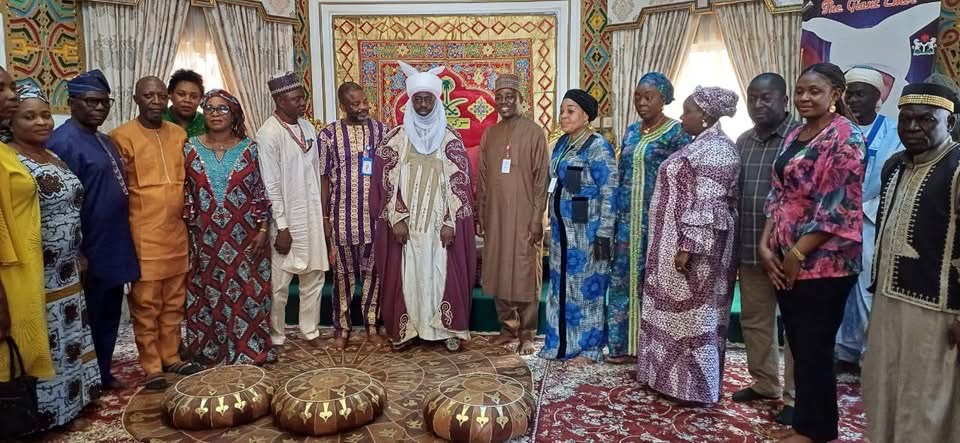BWARI ROYAL FATHERS PLEDGE SUPPORT FOR PCC AS FCT OMBUDSMAN FLAY ARBITRARY SUSPENSION OF VILLAGE HEADS.


25th February, 2025
The Esu Bwari and Chairman Bwari Traditional Rulers Council, His Royal Highness Ibrahim Yaro and, his colleague traditional ruler Sarkin Bwari His Royal Highness Awwal Musa Muhammad have pledged support for the FCT office of Public Complaints Commission in achieving it’s mandate of enthroning administrative and social justice in the Federal Capital Territory.





The traditional rulers made the pledge when the Federal Capital Territory Commissioner, Public Complaints Commission. Hon Musa Dikko paid separate courtesy visits to them in Bwari yesterday.
Hon Dikko used the occasion of separate audiences with the traditional rulers to warn against the habit of arbitrary sack or suspension of Village Heads by District Heads without approval from the traditional rulers.
“District Heads should know where their powers stop. Suspension process of Village Heads must be transparent and approved by the traditional rulers, if* *they act arbitrarily, we at the Public Complaints Commission will resist it as we are trying to maintain peace and avoid frivolous court cases” Dikko said.
While praising the Bwari Area for bringing in less complaints to the Commission; an act which depicts how peaceful they are, the Commissioner who also is the Saduana Maitama a Community in Kubwa Bwari Area Council emphasized that His Royal Highnesses Dr. Ibrahim Yaro and Alhaji Muhammed Awwal Musa should reinforce the message that District Heads must recognize the limits of their authority, avoid specifically acts like suspending a Village Head without His Royal Highness consent; a move he described as unjust.
Despite being in office for only four months, the Commissioner underscored his resolution of over 5,000 complaints out of 8,000 brought to the Commission, expressed commitment towards ensuring that residents of Bwari could easily reach out to PCC while bypassing the challenges of local administration and pledged to install a Complaint Box in the palace of the Esu Bwari for his subjects and the traditional institutions to access the Commission easily.
“PCC is here to serve the public, and we will swing into action immediately to resolve any issues brought before the Commission,” he assured, but however, acknowledged unresolved issues in areas such as Kogbo, for which he has assigned an officer to address the grievances.
The Saduana Maitama noted that many of these complaints arose due to a lack of communication between local leaders, which often led to misunderstandings and disputes, especially in the case of district heads and village heads.
On the ability of the Commission to be proactive in approach to social justice, Dikko said one such example was highlighted in Gishiri, where the PCC took swift action without warning for formal complaints and regretted that if actions were promptly taken by those concerned on receipt of PCC letters, the current protest by the community would have been averted.
Responding, His Royal Highness Alhaji Awwal Musa reflected on his long-standing relationship with Dikko that dated back to when the Commissioner served as a Chairman and, expressed confidence that Saduana Maitama would achieve even greater success in his current role as Public Complaints Commissioner.
The Royal Highness assured the Commissioner of the traditional institution’s full support and promised to address community issues judiciously, while unresolved matters directed to the Commissioner for further action.
HRH Dr. Ibrahim Yaro on his part, while referring to the Saduana Maitama as “our son,” commended his proactive approach to governance and affirmed the peaceful spirit of the Bwari indigenous people, stating that they deeply value harmony.
On the palace complaint box initiative of the Commissioner, he agreed that it would be beneficial, particularly for individuals unable to access the offices of the Commission in Bwari.
Both traditional rulers also prayed for wisdom and divine guidance for the Commissioner as they continue their collaborative efforts in maintaining peace and justice in the Federal Capital Territory.
The courtesy visit is part of series of planned peace building efforts of the Commission in the Federal Capital Territory aimed at creating understanding of the importance of mutual communication, ensuring that the community’s grievances are properly addressed while maintaining the peace for meaningful development.
